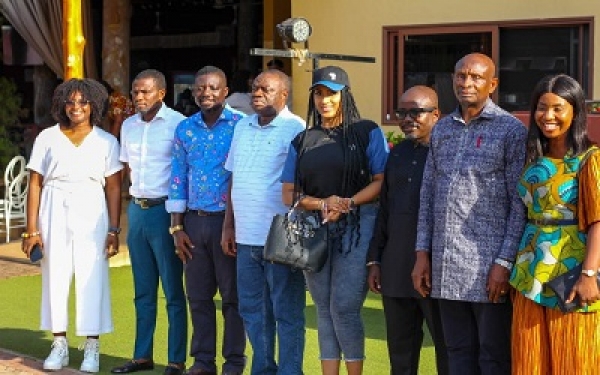Govt to support creative arts industry with GH?5m – Dr Awal
- Posted on
- Comment

The Ministry of Tourism, Arts and Culture is to support the creative arts industry with GH¢5 million as seed money to help it to grow.
Dr Ibrahim Mohammed Awal, the sector Minister, said the money was to support the practitioners to propel the industry to the desired level.
He said this during an interaction with industry players, including actors/actresses and musicians, on ways to improve the sector and make it attractive to investors.
He said the meeting was to familiarise with the stakeholders, know their concerns and find ways of addressing them.
“As seed money, we are going to start with GH¢5 million. For me, it is all about making money so that we can move the industry to the next level. I want to help you make that money, grow your business and pay your taxes,” he said.
Dr Awal appealed to the stakeholders to identify and furnish the ministry with two key projects that could be achieved within two years.
“Let us start with two projects; put that together and let me have it. What I can say is that the President is ready to make things happen; he has given me two years to change the industry, and that is what I will do,” he said.
Dr Awal assured the stakeholders of the ministry’s continued support to ensure the industry thrived.
He assured players in the creative arts industry that he would improve the sector within the next two years.
According to the Minister, he has been tasked by the President to change the industry.
He, therefore, asked the entertainers to come up with two key projects they want dealt with in two years to leave a mark.
He assured them that “we are going to make the best of this industry, and you will all retire well.”
Deputy Tourism Minister, Mark Okraku Mantey pointed out that in the past there has been a gap between the entertainment industry players and government.
He stated, “Anywhere there’s a gap between the ministry and stakeholders, there’s a problem. We do not want to create that gap. In the next three years, we want to bridge that gap.”
Some of the entertainers shared their views on what they believed government’s focus ought to be.
James Gardiner, an actor, noted that similar engagements had taken place in the past to little result.
He explained that the major problem that the industry faces has been funding.
He said, “Our problem has been funding (in the form of artists’ fees). If there is a source of funding that aids production, that will help the industry.
“If there’s a stream of funding that producers can tap into, it will help artists get paid better.”
Highlife musician, Amandzeba noted that other countries’ missions in the country have cultural attachés who work to promote the artistic works that their countries have.
He urged government to “strengthen our missions abroad. If we are going to be visible, then let the cultural attachés function.”
Veteran actor, Abeiku Sagoe also pointed out that there are no professionals among creatives in Ghana. There are also no professionals vested in the entertainment industry who can be called upon for consultancy services.
This has led to a situation where creatives have to double down to create new works while seeking support that is best outsourced.
To solve this problem, he proposed that a restructuring of the industry be done “to help us identify other professionals that will support us. We should look at the structures of the industry.”
The Minister assured the entertainers that he was ready to learn from and work with them to change the industry.
The practitioners mentioned challenges, including the lack of funds, lack of government support and proper regulation, and influx of foreign content.
By Selorm Gbordzidi, Accra






 (Selorm) |
(Selorm) |  (Nana Kwesi)
(Nana Kwesi)